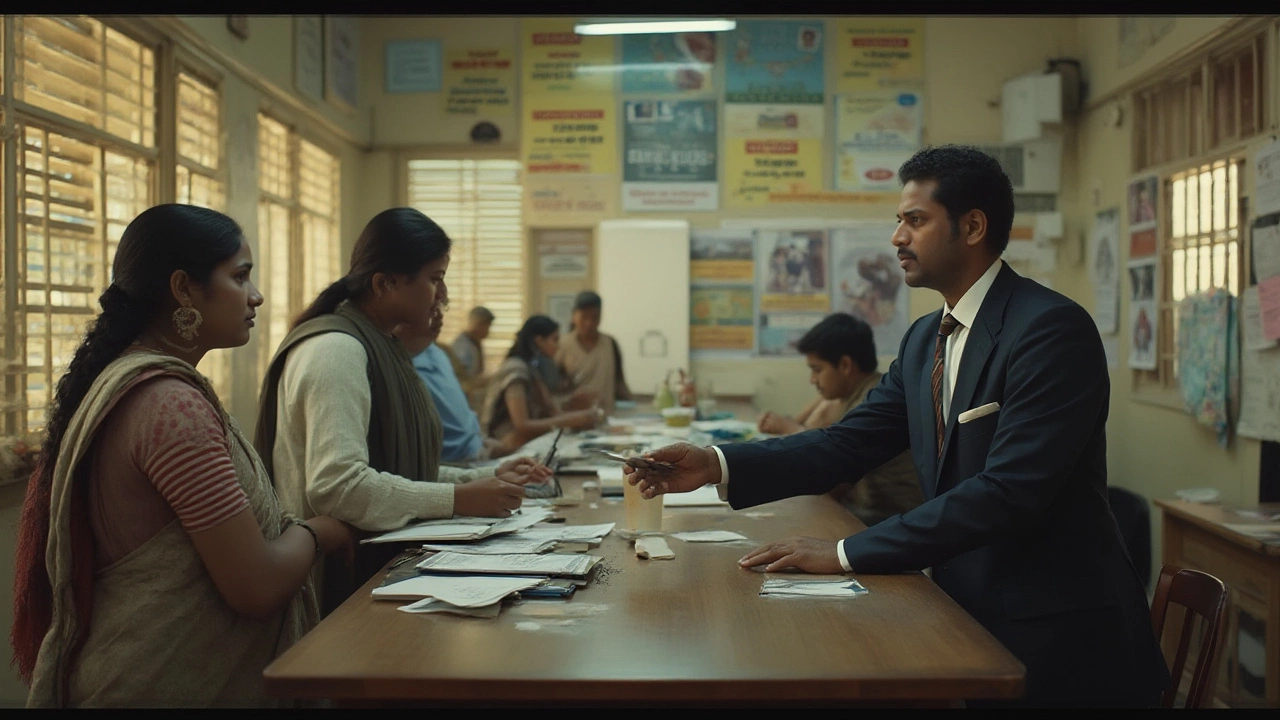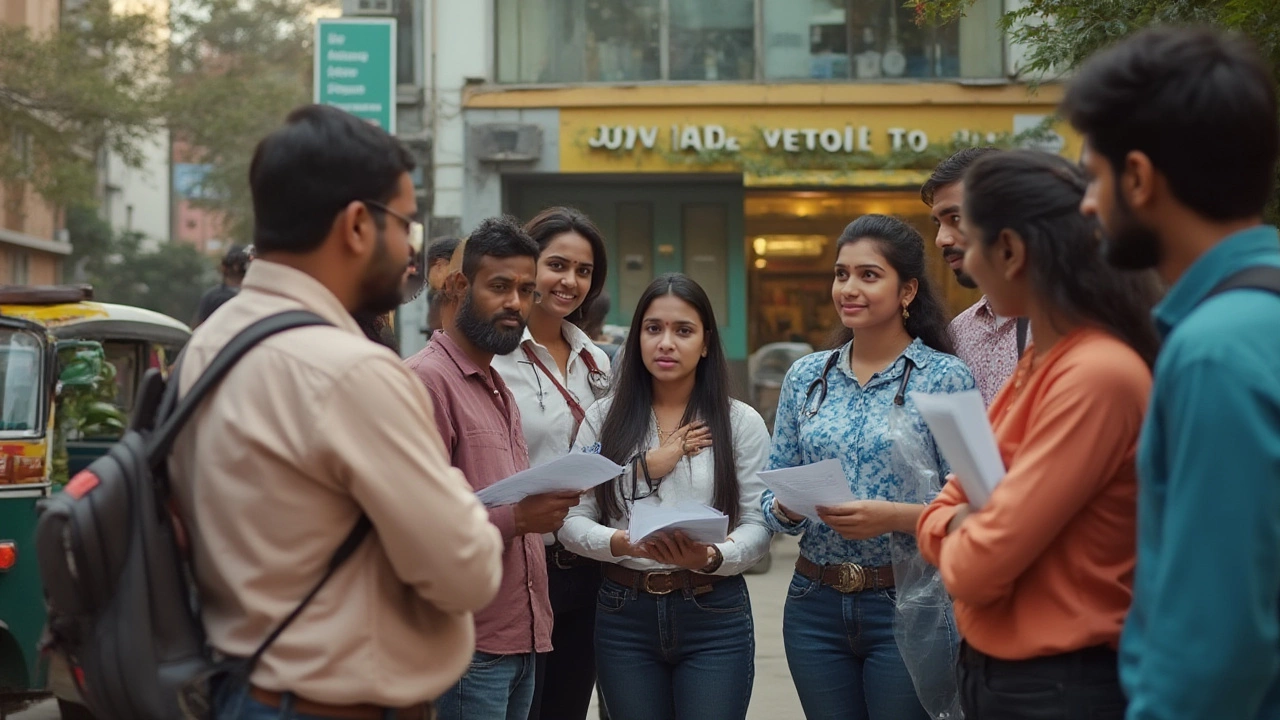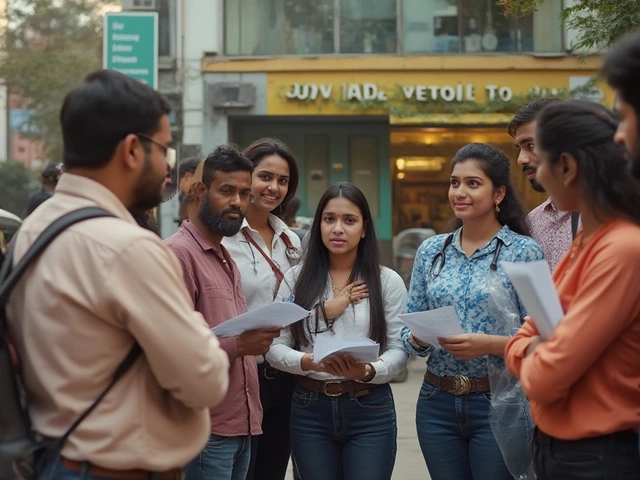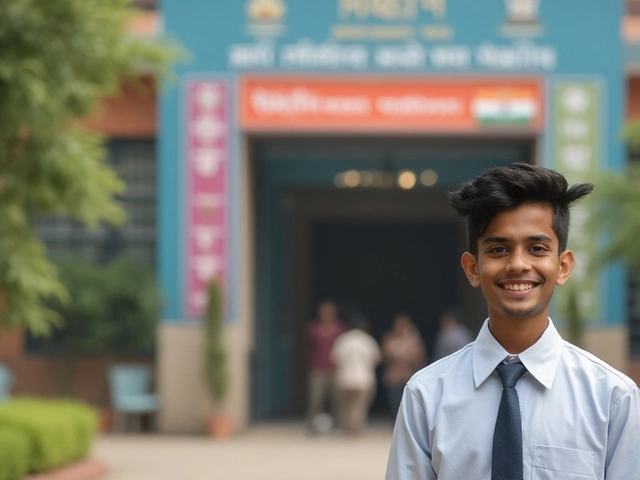You hear your friend just landed a job at the BBMP office or the district collectorate and you wonder—how did they pull that off? Local government jobs in India are wrapped in a mix of myths, genuine challenges, and maybe old stories that sound bigger than life itself. The reality can be a little harsh, but if you know the terrain, you’ve already won half the battle. Job security, retirement benefits, and sometimes even just the pride of serving your own community—no wonder these jobs are attractive. But getting one? Not everyone succeeds on the first try.
The Landscape of Local Government Jobs in India
Across India, local government bodies like urban municipalities, panchayats, and city corporations handle everyday essentials—sanitation, roads, birth certificates, and much more. They employ millions. According to Ministry of Personnel, Public Grievances and Pensions data, as of 2022, there are around 8.5 million government employees at various levels, and a significant chunk work at the state and local levels. Municipal offices in metros like Bengaluru aren’t just about clerks and sweepers, but also engineers, IT experts, finance officers, social workers, and sometimes even communication pros who handle public grievances or do community outreach.
Pay scales have improved over the years because of Pay Commissions. In a city like Bengaluru, a municipal engineer’s entry-level pay could be around Rs 45,000 per month, thanks to the 7th Pay Commission recommendations. Factor in retirement pension, paid leaves, healthcare, and even subsidized loans for housing. This steady package attracts not just freshers, but also people slogging it out in the unstable private sector.
But here’s the catch: every year, lakhs of candidates eye a few thousand seats. The competition is seriously stiff. For a clerical job, you might find 5,000 applications for 20 positions, especially because these roles don’t always demand fancy degrees. However, the job pool isn’t shrinking. With new government initiatives and expansion of city limits, more roles have opened up in planning, IT, and public health. If you’re adaptable, even non-traditional backgrounds—like marketing or design—can prove valuable. Bengaluru’s local agencies, for instance, have started hiring for digital services and social media teams.
Eligibility, Requirements, and the Selection Process
Think it’ll be a cakewalk if you have a degree? Not quite. You always need to keep an eye out for official notifications from the Karnataka State Public Service Commission (KPSC) or the respective state commission. Most jobs start with basic eligibility—12th pass for assistant grade, a diploma or degree for engineers, social welfare, or administration roles. For some roles, like town planners or health inspectors, specific qualifications and sometimes licences are mandatory.
If you belong to a reserved category (SC, ST, OBC), there are benefits—not just in qualifying marks, but also in number of attempts. Age relaxations can apply, sometimes up to 10 years, if you fit certain categories. Here’s where many trip up: every recruitment cycle puts up its own set of requirements. Marks, experience, age, and even language skills (like Kannada for local jobs in Karnataka) are always part of the check-list.
The selection process has multiple stages, typically: a written test, skill or practical test (for hands-on roles, like driving, clerks, or data entry), followed by a face-to-face interview. If you think interviews are a formality, think again. They can change your fate in a ten-minute conversation. For roles that handle finances or sensitive data, background checks can even go back to your school days. For higher-level posts, there might be group discussions, case studies, or even psychometric tests.
To really compete, you need a mix of preparation strategies: practice mock tests, get familiar with the local syllabus (many questions focus on Karnataka’s history or polity if you’re eyeing Bengaluru posts), and brush up your language skills. Typing tests—yes, you can’t skip that if you’re going for clerical or stenographer jobs—have knocked out many otherwise brilliant candidates. It’s painful to lose out on your dream because of 5 missed words in a 10-minute speed test.

Challenges: Competition, Corruption, and Changing Expectations
If you’re thinking, “I’ll just keep applying until I get in,” let’s talk about the real challenges. The local government jobs scene sometimes feels like playing kabaddi—there’s as much skill as there is luck. Bracing for disappointment is part of the game. Some positions don’t advertise new seats every year, so you might wait 2–3 years for a vacancy that fits you. If your batch is the unlucky one (think: pandemic delays or budget cuts), applications might remain frozen for months.
Many complain about a lack of transparency. Posting results and merit lists can take a painfully long time—sometimes over a year. Allegations of corruption and favoritism have clouded some recruitments. Karnataka Lokayukta handled at least 300 complaints relating to irregularities in appointments from 2021–2024, especially in rural local bodies. Not everyone faces this, but it’s something to watch for. Always check official websites, not just WhatsApp groups or coaching center rumors.
Another hard fact: English fluency and computer literacy are no longer ‘bonus’ skills but must-haves. Local bodies are going digital—think contactless bill payments, smart city projects, online grievance forums. The days when you could survive with basic pen-and-paper skills are fading. If you have digital skills or can speak more than one local language, you’ll have a real edge. Internal transfers and promotions also depend on regular upskilling in these areas.
Check out this recent data on local government job openings versus applications in Karnataka for 2024:
| Post | No. of Openings | Applicants |
|---|---|---|
| Clerk/Data Entry Operator | 400 | 32,000 |
| Junior Engineer | 120 | 8,700 |
| Accountant | 75 | 6,200 |
| Health Inspector | 60 | 4,800 |
See the ratio? No joke. If you crack through, pat yourself on the back because you’ve outpaced hundreds, sometimes thousands, for a single seat. The cream of government aspirants often doesn’t come from fancy colleges—it’s those who out-prepare, out-network, and outlast.
Smart Tips and Long-Term Strategies for Emerging Victorious
So, what can you do to tip the odds in your favor? First, start early. Don’t just dream about a government job after graduation—prepare while you’re still in college. Join clubs or volunteer for local civic groups like Rotary or NSS; experience dealing with the public counts. Build simple habits—practise your Kannada (or the regional language), read up on local politics, and attempt last year’s KPSC question papers even if you’re two years away from applying.
Secondly, never rely only on a single post or department. Cast a wider net. Even if your first choice is BBMP in Bengaluru, apply for similar posts in smaller municipalities or town panchayats—smaller places can be easier to get in and promotions can be faster if you perform well. Some people fear leaving their home cities, but a transfer to a big city is always possible later. Don’t forget, you can continue private tuitions or side hustles on weekends in small towns where the cost of living is lower.
- Attend workshops and exam coaching, but avoid scams or overpriced programs. Stick to those with concrete past success stories and free demo sessions.
- Network shamelessly—know someone who already works in the department? Meet them, ask about their interview experience, what they wish they’d done differently, and what the real day-to-day job is like.
- Document and organize your educational and caste certificates early. Many have lost their shot because they couldn’t produce documents on time. Keep digital and physical copies ready and renew them as needed.
- If you’re aiming at technical posts (like IT/engineering), do online certification in emerging tools; digital transformation is making these skills crucial even in traditionally ‘slow-moving’ departments.
- Treat your health and stress as seriously as your studies. Physical tests, verification rounds, or even just waiting for results can be stressful. Routine exercise or meditation can save you from burning out or losing your calm in crucial interviews.
Finally, keep options open. Private sector jobs or further study don’t close the government door; many future local government officers start as contract employees, interns, or volunteers. Even if you don’t land a government seat right away, experience with NGOs or local projects can later count toward your scorecard during interviews. The real trick isn’t to pin all hopes on a fast result—but to play the long game, pick up skills, and build a portfolio that shows both perseverance and adaptability.
Yes, getting into local government is harder than it first appears. But if you’re prepared, organized, and a little bit persistent, you’ve already beaten most of the competition without even getting to the written test stage. Like any prized thing, it’s not for the faint-hearted—but for those who stay the course, the rewards are solid and sometimes even life-changing.



